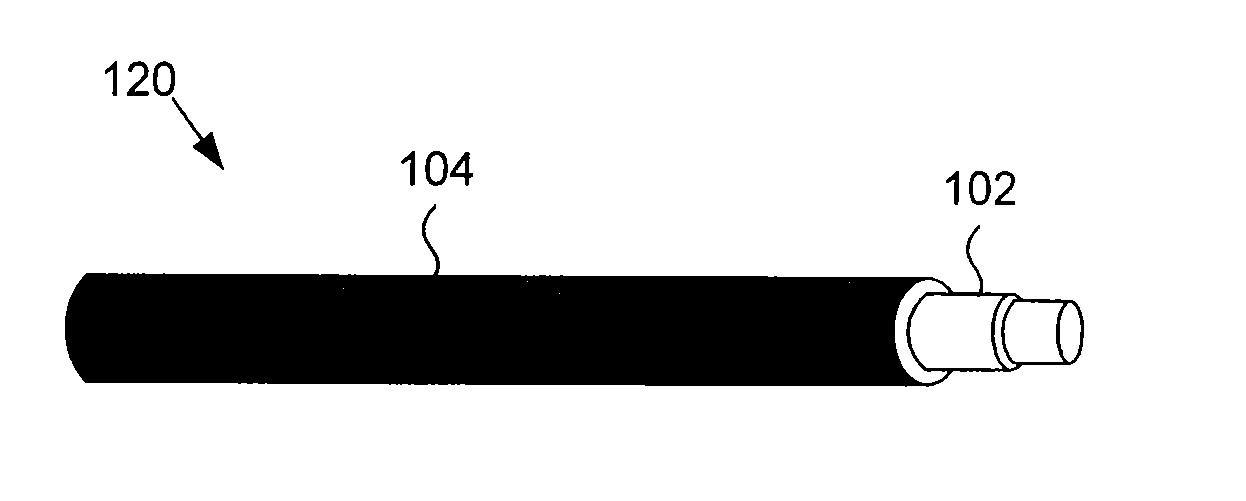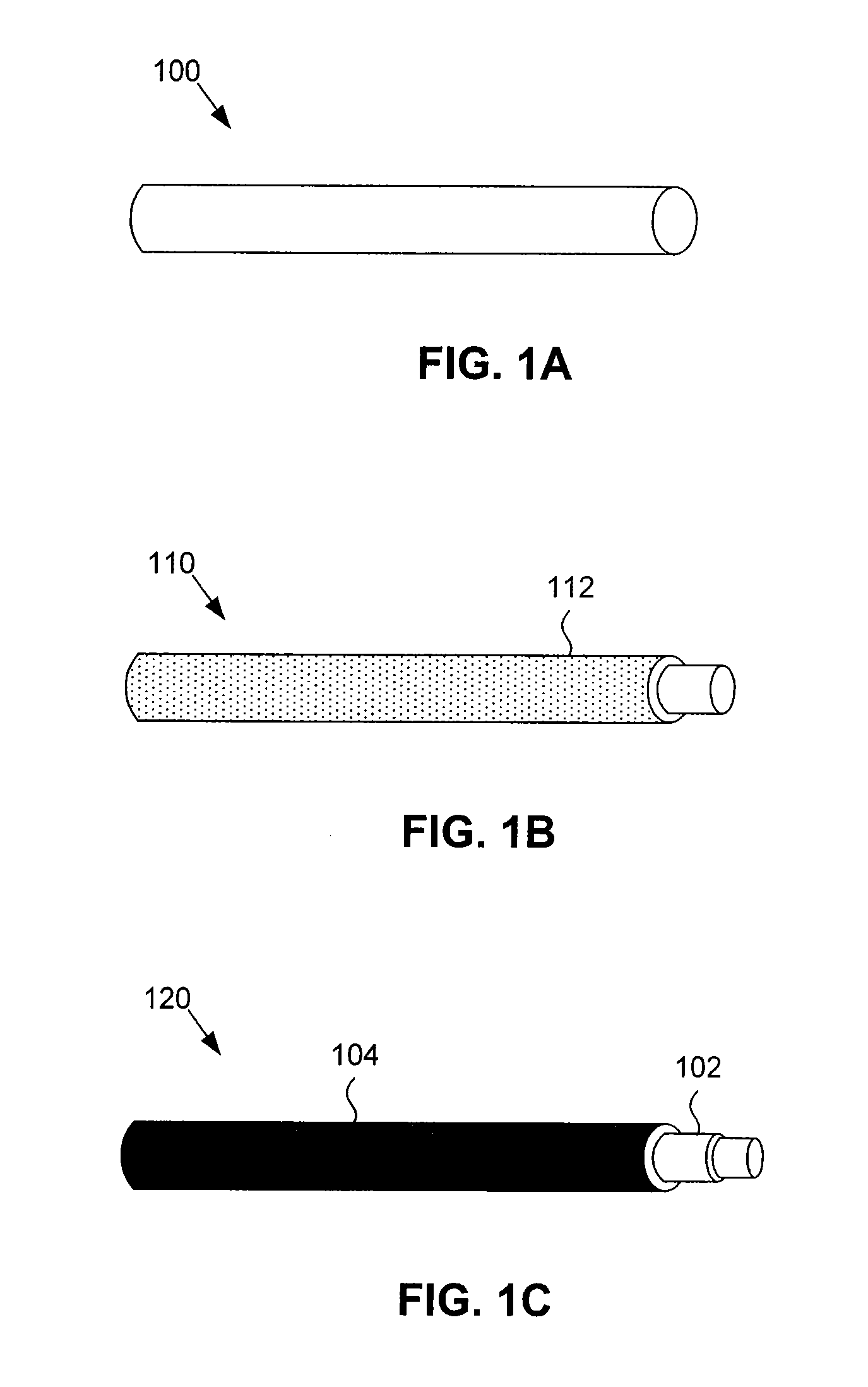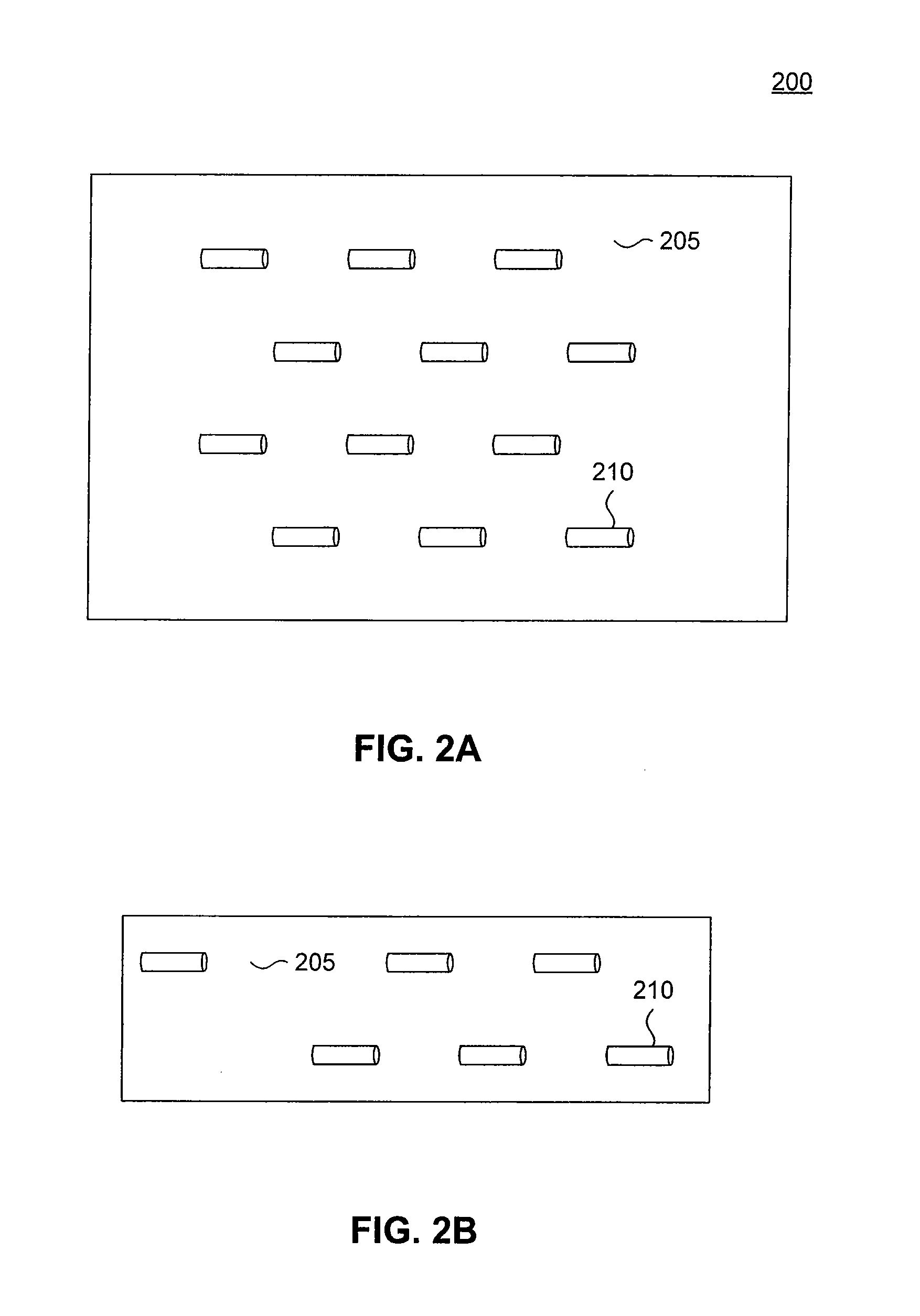Dielectrics using substantially longitudinally oriented insulated conductive wires
a technology of conductive wires and dielectrics, applied in the field of conductive wires, can solve the problems of limited application and use of existing artificial dielectrics, limited ability to achieve high dielectric constants within existing artificial dielectrics, and limited application of dielectric structures based on existing dielectrics. achieve the effect of improving the performance of cell phones
- Summary
- Abstract
- Description
- Claims
- Application Information
AI Technical Summary
Benefits of technology
Problems solved by technology
Method used
Image
Examples
example
[0169]75 / 50 SPNSN wire was obtained from MWS wire industries. This product consists of 75 strands of polyurethane-nylon insulated 50 gauge copper wire. Approximately 50 two centimeter lengths of the stranded wire were placed longitudinally into a three centimeter piece of heat shrink tubing. The tubing was activated with a hot air gun and shrunk conformably around the wire bundle. About 1 cm was sliced of each end of the bundle. The center piece was then placed into a vial containing uncured epoxy. The vial was placed into a vacuum chamber and evacuated until bubbles could no longer be observed coming out of the epoxy. The vacuum was broken and the wire bundle was then placed in an oven at 80 degrees Celsius to cure the epoxy that had filled the voids between the wires. After curing a transverse 3 mm slice was taken out of the bundle with a razor blade. Teflon films were then placed on the ends of the piece and dielectric measurements were performed. The dielectric constant of the m...
PUM
| Property | Measurement | Unit |
|---|---|---|
| Pore size | aaaaa | aaaaa |
| Thickness | aaaaa | aaaaa |
| Diameter | aaaaa | aaaaa |
Abstract
Description
Claims
Application Information
 Login to View More
Login to View More - R&D
- Intellectual Property
- Life Sciences
- Materials
- Tech Scout
- Unparalleled Data Quality
- Higher Quality Content
- 60% Fewer Hallucinations
Browse by: Latest US Patents, China's latest patents, Technical Efficacy Thesaurus, Application Domain, Technology Topic, Popular Technical Reports.
© 2025 PatSnap. All rights reserved.Legal|Privacy policy|Modern Slavery Act Transparency Statement|Sitemap|About US| Contact US: help@patsnap.com



